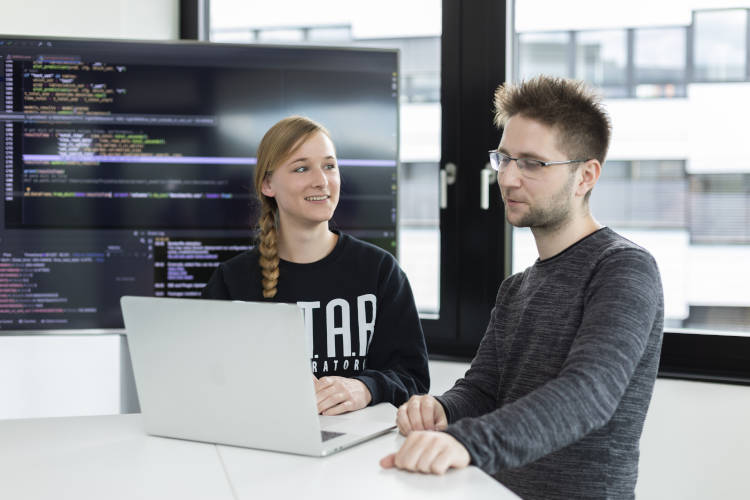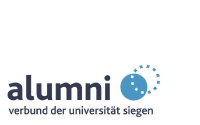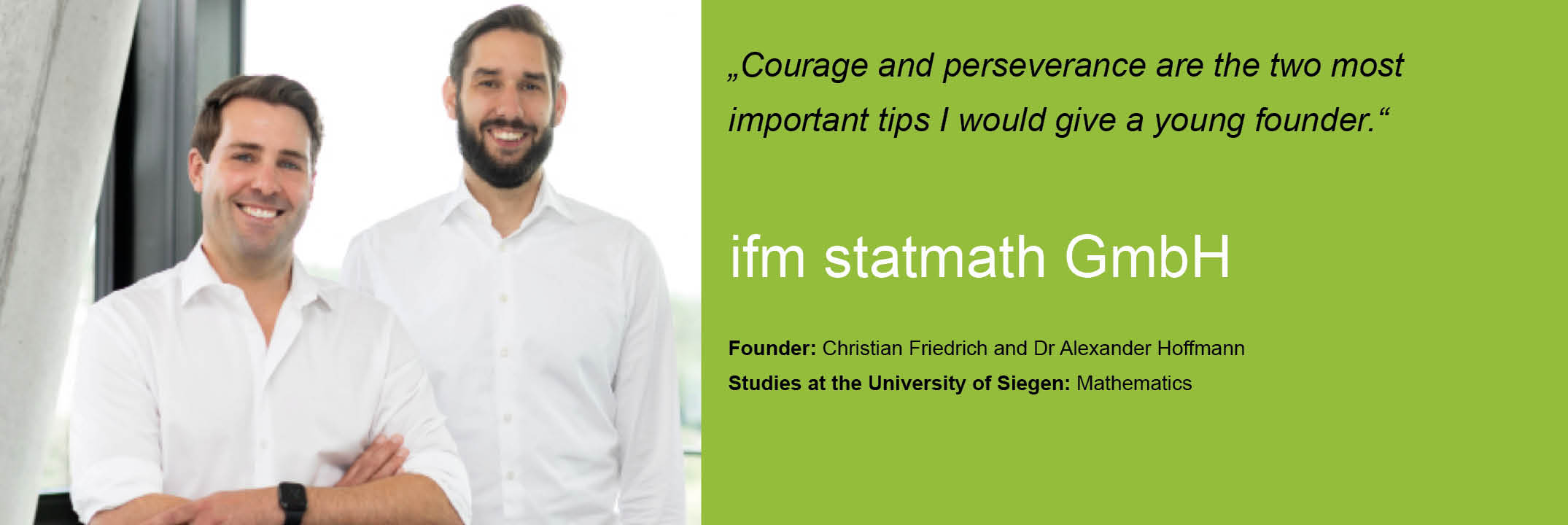ifm statmath gmbh
Founded in 2011 by Christian Friedrich and Dr. Alexander Hoffmann as statmath GmbH, the company optimizes industrial production processes and production planning using Artificial Intelligence (AI). Since early 2022, statmath GmbH has been a 100% subsidiary of ifm electronics GmbH. At the end of 2022, statmath GmbH was renamed and has since been known as ifm statmath GmbH.
Alexander and Christian are both trained mathematicians. They formed a study group while preparing for their exams at the University of Siegen. Over time, the two students began to consider how they could turn their private tutoring activities into something more professional. They then developed tutorials for the fields of civil engineering and mechanical engineering to prepare for challenging mathematical exams, which often presented major obstacles in the curriculum. "That's how we started to be economically active together," says Christian.
The most important component of their collaboration is complete trust. "We have the ability to make decisions together and share a common understanding of solutions. You could say we are a unit," Christian further explains.
ifm statmath GmbH has two office locations in Siegen, where a total of 40 employees are now employed. One can be found in the Summit, the new IT location in the city of Siegen, and the other in an old villa in downtown Siegen. This location offers creative space and thus contrasts with the modern high-tech location in the Summit.
ifm statmath GmbH creates value from the data sources of its customers. The offerings of ifm statmath include a collection of mathematical functions (algorithms) for solving industrial problems in the areas of predictive maintenance and forecasting of manufacturing qualities. This enables their customers to increase the efficiency of their plant processes and relieve employees.

How did you come up with the idea for statmath and thus the idea of Data Science Solutions?
We first dealt with the topics of data analysis and machine learning in 2007/2008 in one of our lectures at the University of Siegen. The topic was only treated theoretically and was still not very tangible. The term "Big Data" did not exist back then. However, we already saw a huge need for Data Science at that time. The idea of analyzing large amounts of data initially led us more towards the banking sector as a business field. At that time, the industry was not yet so advanced. It wasn't until the industrial sector became increasingly interconnected and digitized that we started to focus intensively on data from production processes in 2014.
What attracted you to start your own company?
It had rather pragmatic reasons. In the 2000s, mathematicians were primarily trained for the banking and insurance sectors. In my bachelor's thesis, I wrote about credit portfolios and calculated that these would collapse like a house of cards. That shocked me so much that it became clear to me that I did not want to work in this industry. I couldn't reconcile these risk packages with my personal values; I didn't want anything to do with it. Alexander had similar experiences during his internship at a bank. In addition, the major financial crisis occurred in 2008/2009. Mathematicians were no longer being hired. At that time, we thought we had little to lose. We didn't have big financial demands, so we tried to advance our own ideas as best we could.
When did you decide to start?
In 2011, the decisive contact was made with the Sparkassen Finanzgruppe. I remember the exact day when we presented our ideas for our software to the financial group and they decided to use our tool extensively. To be honest, we were initially taken aback. Until then, we were just a two-person operation. We thought to ourselves: how are we going to manage to develop software for 75 savings banks?
When we were in the elevator on our way home from the meeting, we faced our big moment. At this point, we had to either step on the gas and expand the company massively or hit the brakes and abandon the whole thing. We chose to go full throttle. At this point, we also depended on external capital. Through a financing loan, we were able to start the pre-investment in software development.
What challenges did you face when founding statmath?
A critical moment arose when we had used up everything except for 300 euros of our financing loan and it wasn't certain whether we could turn the tide. Fortunately, we managed to overcome this financial pressure.

What is your unique selling proposition?
At the beginning, we had to do a lot of explanatory work because many people couldn't grasp the idea. That changed over time. By now, there are quite a few companies advertising similar competencies outwardly. The business has fundamentally changed over the last 10 years. Today, we have to elbow our way through to avoid getting lost in the crowd of competitors. However, since we started with the idea of Data Science in 2009, we rightfully claim to be a Data Science company from the early days. We have years of experience in the field and jumped on this technological bandwagon before the hype even began.
How did the University of Siegen's startup office support you?
The startup office provided strong support in the first two years by explaining to us how to build a company, what aspects are important in a startup, and how to apply for a startup scholarship, for example. Thanks to their support, we received the EXIST startup scholarship. In addition, there were personal coaching sessions that were very helpful.
What advice would you give to young entrepreneurs?
Courage and perseverance are the two most important tips I would give to a young entrepreneur. I've seen many people with great ideas who ultimately became afraid of their own courage. That's why I advise young entrepreneurs to have the courage to consistently pursue their own ideas. And I wish them the perseverance to withstand the inevitable resistance they will encounter.
Would you start a business again?
I would start a business again immediately. Of course, starting a business always involves some personal pain. We paid a price for our success story, but in the end, it was always worth it.
This portrait is based on an interview with Christian Friedrich in July 2020 and was written by Janice Gust.
Here to the startup's homepage.


